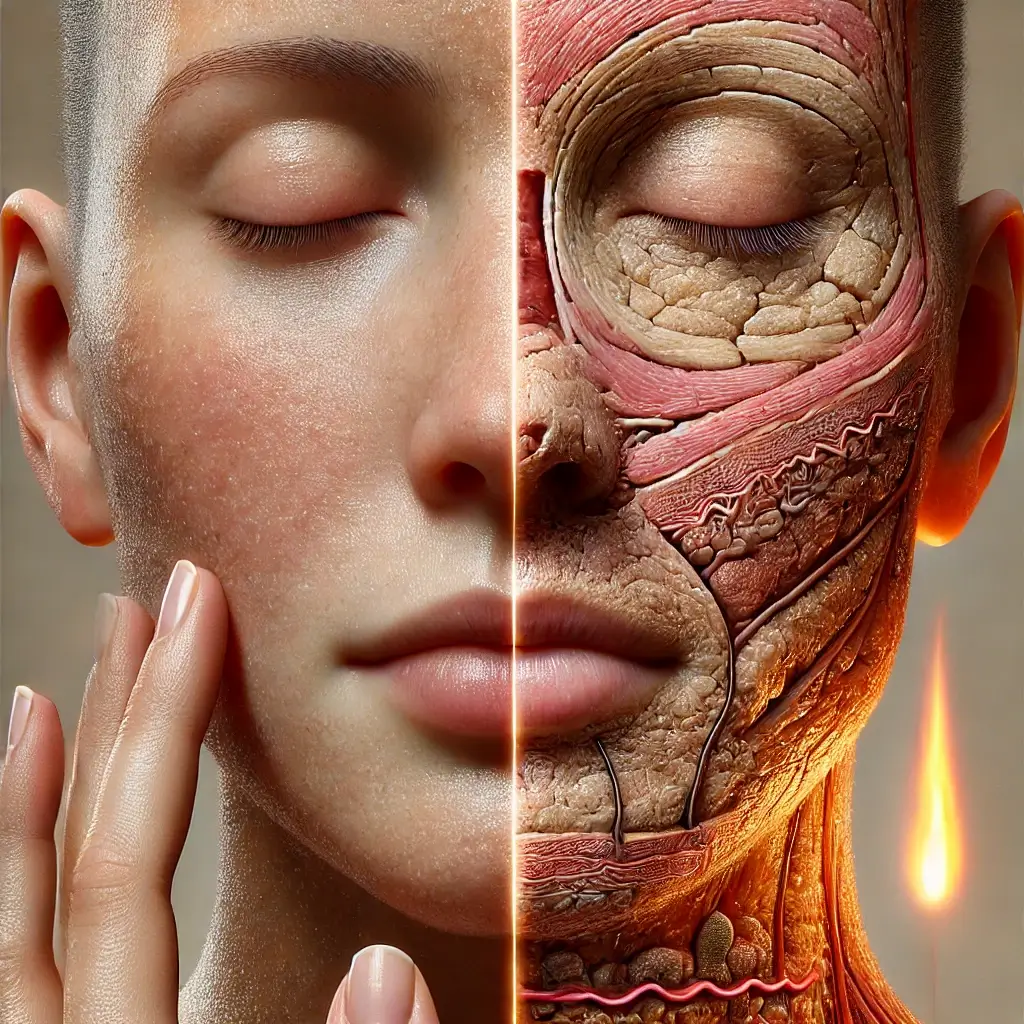Understanding the Science and Protecting Your Complexion
Summer’s warmth can feel like a soothing balm to your soul, but what if that same comforting heat is actually wreaking havoc on your skin? Whether it’s the glaring sun or the cozy heat from your favorite indoor activities, your skin might be suffering in ways you haven’t even realized. In this article, we’ll dive deep into how heat affects your skin, unraveling the science behind it and providing practical tips to keep your complexion flawless.
The Science of Heat and Your Skin: What Really Happens
Most of us are aware that UV rays from the sun can damage our skin, but did you know that heat itself plays a significant role in skin health?
When your skin is exposed to heat, it triggers a series of physiological responses. The body’s natural cooling mechanism, sweating, kicks in, but along with that comes a surge in blood flow to the skin’s surface. This increased circulation can cause redness, inflammation, and even exacerbate conditions like rosacea. Moreover, prolonged exposure to heat can lead to a breakdown in the skin’s natural barrier, making it more susceptible to damage from environmental factors.
The Invisible Enemy: Heat-Induced Dehydration
Heat doesn’t just make you swea: it silently steals the moisture from your skin, leaving it thirsty and vulnerable.
One of the most insidious effects of heat on the skin is dehydration. As your body tries to cool down, you lose water through sweat, which is essential for maintaining skin hydration. This can lead to a dry, flaky complexion, fine lines, and an overall dull appearance. Without proper hydration, your skin’s elasticity decreases, making it more prone to early signs of aging. Furthermore, dehydration can weaken the skin’s protective barrier, leading to increased sensitivity and a higher risk of irritation.
Heat and Collagen Breakdown: Accelerating Aging
If there’s one word that strikes fear into the heart of anyone concerned about their skin, it’s “aging.” Unfortunately, heat may be speeding up that process.
Collagen is the protein that gives your skin its firmness and structure. However, exposure to heat can accelerate the breakdown of collagen fibers. This occurs because heat increases the activity of enzymes known as matrix metalloproteinases (MMPs), which degrade collagen. Over time, this can lead to a loss of skin elasticity, sagging, and the development of wrinkles. Alarmingly, this process isn’t exclusive to sunbathers—any source of prolonged heat, including that from saunas, hot baths, and even cooking over a hot stove, can contribute to collagen breakdown.
Hyperpigmentation: Heat’s Dark Secret
Think your sunblock has you covered? Heat may still be causing those pesky dark spots to appear.
Hyperpigmentation, or dark spots on the skin, is often associated with UV exposure, but heat alone can also trigger this skin concern. When your skin is exposed to heat, it stimulates the production of melanocytes, the cells responsible for producing pigment. In individuals prone to melasma or post-inflammatory hyperpigmentation, heat can exacerbate these conditions, making dark spots more pronounced and difficult to treat. This means that even if you’re vigilant about applying sunscreen, the heat itself can still lead to uneven skin tone.
Protection and Prevention: Shielding Your Skin from Heat Damage
Now that you know the dangers, how can you protect your skin and keep it glowing all year round?
The good news is that you can take steps to protect your skin from heat-induced damage. Start by staying hydrated—drink plenty of water and use a moisturizer that suits your skin type. Look for products containing hyaluronic acid, which helps retain moisture, and antioxidants like vitamin C, which combat oxidative stress caused by heat. It’s also crucial to avoid excessive heat exposure whenever possible. Wear broad-spectrum sunscreen, even on cloudy days, and consider investing in a thermal water spray to soothe your skin when it feels overheated.
In addition, consider adjusting your skincare routine according to the season. During hotter months, opt for lighter, non-comedogenic products that won’t clog your pores. For those with sensitive skin, avoiding hot showers and using lukewarm water can prevent further irritation. Lastly, make it a habit to cool your skin after sun exposure with a soothing aloe vera gel or a cool compress, which can help reduce inflammation and minimize heat-related damage.
Heat is an unavoidable part of life, but understanding how it impacts your skin is the first step toward effective protection. From dehydration and collagen breakdown to the aggravation of pigmentation issues, the effects of heat are far-reaching. By taking proactive steps—such as staying hydrated, using the right skincare products, and minimizing your exposure to heat—you can keep your skin healthy, radiant, and resilient against the elements. So, the next time you bask in the warmth, remember that a little extra care can go a long way in preserving your complexion’s natural beauty.
Don’t Forget to Check our other Skincare Articles from the BLOG section !

